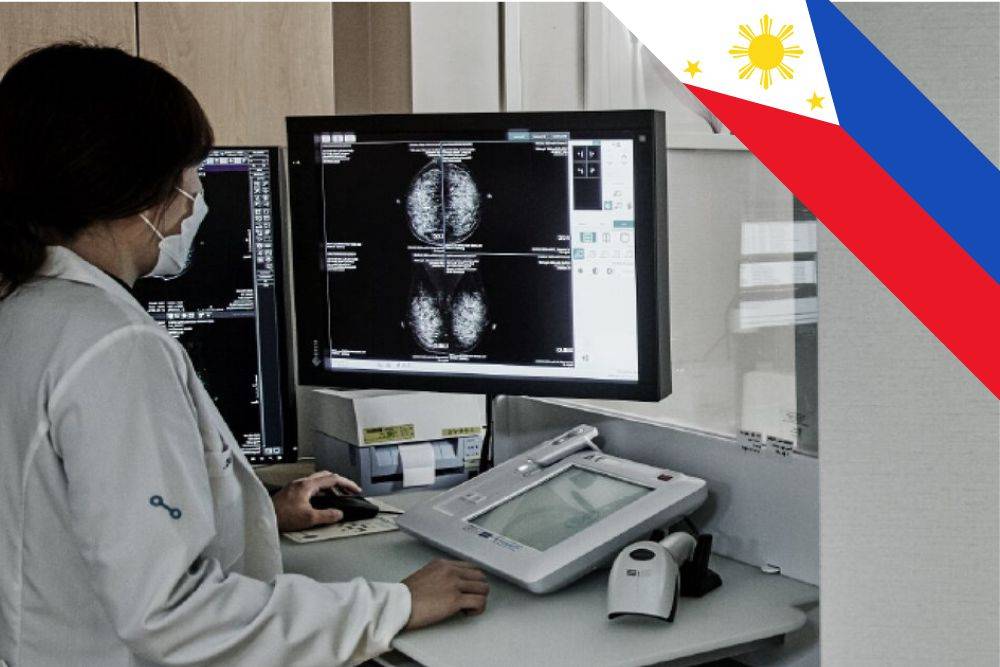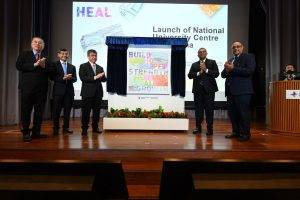Artificial intelligence (AI) has emerged as a transformative force in the rapidly evolving healthcare landscape, revolutionising diagnostic and treatment approaches.
The Medical City (TMC) in the Philippines has embraced this technological advancement through a pioneering collaboration with Lunit, an AI specialty company. This partnership marks a significant milestone in the country’s healthcare sector with AI-integrated medical services and research.
Introduction to AI Integration
Beginning this year, TMC has integrated AI solutions into its mammography and chest X-ray services. There are also ongoing developments for interpreting 2D echocardiography and laboratory results for predictive medicine. This is spearheaded by Dr Ruben G Kasala, Executive Vice President and CEO of TMC Ortigas. Therefore, this initiative signifies a bold step towards leveraging AI to enhance healthcare delivery and research capabilities within the Philippines.
Innovation with Lunit: Enhancing Diagnostic Accuracy
Lunit Insight CXR is an AI solution tailored for chest X-rays. Consequently, it has been instrumental in detecting ten abnormal radiologic findings with remarkable accuracy ranging from 97% to 99%. This innovative system has facilitated early disease recognition in diagnostic tests, particularly for mammography and chest X-ray specialties at TMC. Subsequently, TMC has optimised efficiency and precision in diagnostic procedures, with radiologists validating results to ensure accuracy.
Continuous Improvement and Collaboration
The collaboration between TMC and Lunit underscores a commitment to continuous improvement and innovation in healthcare. Regular exchanges and updates between specialists from both entities ensure the refinement and validation of the AI system for optimal performance. As TMC embraces AI as a “still learning machine,” the organisation remains dedicated to harnessing its potential to enhance patient care, clinical processes, and administrative efficiency.
Challenges and Opportunities
While AI holds immense promise in healthcare, its effectiveness is contingent upon robust data infrastructure and specificity. Challenges arise in ensuring the availability of region-specific data and outcomes tailored to the Philippines’ diverse population. TMC acknowledges the importance of collecting and analysing data pertinent to local healthcare contexts. These include race, ethnicity, religion, and geographical conditions. Establishing protocols for authentic data interpretation and treatment outcomes is crucial to realising AI’s potential in delivering tailored treatments and accurate patient diagnoses.
Expanding AI Applications
Beyond diagnostic imaging, TMC envisions leveraging AI across various healthcare domains to improve patient care and outcomes. Plans are underway to explore AI applications in predictive medicine, leveraging data from 2D echocardiography and laboratory results to anticipate and prevent disease progression. Additionally, TMC aims to integrate AI into its digital health initiatives, enhancing patient monitoring, personalised treatment plans, and telemedicine services.
AI Training and Education
TMC is committed to providing comprehensive training and education on AI technologies. Collaborations with academic institutions and industry experts enable TMC to develop specialised AI training programs tailored to the needs of healthcare professionals. By equipping clinicians and staff with the knowledge and skills to harness AI effectively, TMC aims to maximise the potential of AI in improving patient care and operational efficiency.
Partnerships in AI Research
TMC actively fosters partnerships with research institutions, technology companies, and government agencies to advance AI research and innovation in healthcare. By collaborating on AI-driven research projects, TMC contributes to developing cutting-edge AI algorithms and solutions tailored to the needs of the local healthcare landscape. These collaborative efforts pave the way for groundbreaking discoveries, breakthrough treatments, and improved healthcare outcomes for patients across the Philippines.
Shaping the Future of Healthcare with AI
In conclusion, the partnership between TMC and Lunit heralds a new era of AI-integrated healthcare and research in the Philippines. Through innovation, collaboration, and a steadfast commitment to excellence, TMC is poised to transform the healthcare experience, ensuring that patients receive the highest standard of care empowered by cutting-edge technology. As AI continues to evolve and expand its capabilities, TMC remains at the forefront of driving positive change and innovation to pursue better health outcomes for all.
Photo: Lunit











